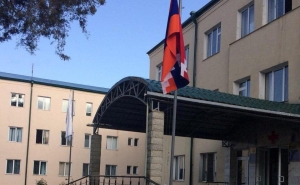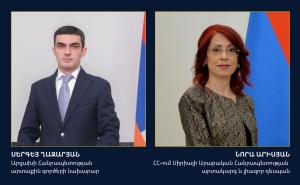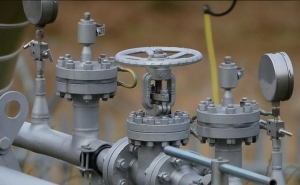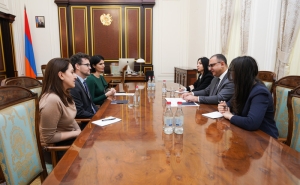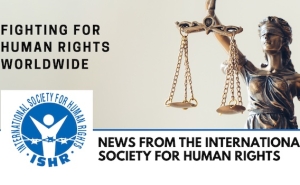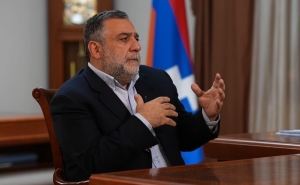 Which Document Is on the Negotiation Table of Karabakh Conflict Settlement?
Which Document Is on the Negotiation Table of Karabakh Conflict Settlement?
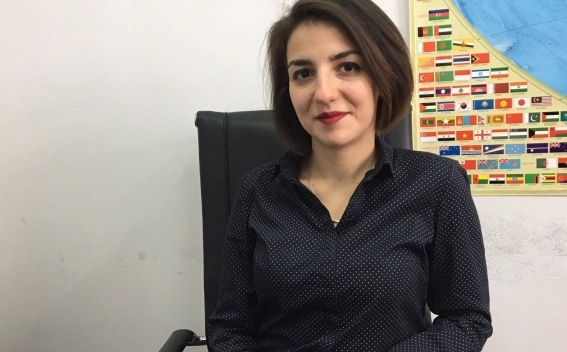
When summarizing 2016 one should also refer to the Karabakh conflict settlement process and particularly the document that today the mediators put on the negotiation table.
Though today there are no publicly declared political negotiations, as after the April war Azerbaijan is hindering even the implementation of Vienna and St. Petersburg agreements on confidence-building measures, the mediators claim that in parallel with creation of trust, political negotiations should be resumed.
In the beginning of the year alternative variants for conflict settlement were disseminated in media. Aliyev also declared that there is a pressure on him to recognize Nagorno-Karabakh Republic, declared that he is ready to grant Karabakh autonomy in the territory of Azerbaijan, etc. The so called "Lavrov plan" was also widely discussed, which allegedly assumes concession of 5 regions to Azerbaijan, instead having open communication; a plan, which allegedly does not have any clear implication on Karabakh’s status. This option, however, is not documented and was disseminated only by media, which creates more uncertainties than simplifies the situation.
In reality the developments of the negotiations of 2016 and the current situation was summarized in the joint declaration of the Foreign Ministers of the OSCE MG Co-Chair countries made in the framework of the Ministerial Summit held in Hamburg. "We remind the sides that the settlement must be based on the core principles of the Helsinki Final Act, namely: non-use of force, territorial integrity, and the equal rights and self-determination of peoples, and additional elements as proposed by the Presidents of the Co-Chair countries, including return of the territories surrounding Nagorno-Karabakh to Azerbaijani control; an interim status for Nagorno-Karabakh providing guarantees for security and self-governance; a corridor linking Armenia to Nagorno-Karabakh; future determination of the final legal status of Nagorno-Karabakh through a legally binding expression of will; the right of all internally displaced persons and refugees to return to their former places of residence; and international security guarantees that would include a peacekeeping operation," the statement said.
In this declaration the representatives of the mediating countries stressed that the settlement should be based on the so called "Madrid principles". This means that the issue of status will be solved through referendum, while the manipulations of the Azerbaijani side are directed towards deviating the path of the negotiations the way it is in their interests.
Thus, after the April war, the political negotiations over Karabakh conflict settlement have not resumed. However, when resumed the mediators will put the Madrid principles or their renewed option on the negotiation table and in that option the important element – referendum for determining the status of Karabakh, will not be absent.
Other materials on this subject
- Russian forces have clearly failed in their duties: senators press Biden Administration to break Azerbaijan’s blockade The United States cannot stand aside while the Aliyev regime callously threatens the lives of Nagorno-Karabakh’s citizens, and must hold Azerbaijan to account for blocking a civilian population’s access...
- US calls for the full restoration of free movement through the Lachin Corridor "We remain concerned about impeded access to the Lachin Corridor and the humanitarian implications of this situation. This sets back the peace process and undermines international confidence. We call for...
- Azerbaijani forces violate the ceasefire in Artsakh The ceasefire violation was reported to the command of the Russian peacekeeping troops.
- Azerbaijani units violate ceasefire in several directions, Artsakh’s Defense Ministry says The Armenian side has no losses. The incidents of ceasefire violations were reported to the command of the Russian peacekeeping troops.
- Russian Diplomat Reassures Armenians Over Corridor In Karabakh "The parties are in direct contact, and I assure you that the peacekeepers will not move a single centimeter until there is a new corridor," Seleznyov said.
-
 17:08
17:08The regular session of the Anti-corruption Policy Council takes place in Jermuk
-
 15:05
15:05The Prime Minister sends congratulatory messages to the supreme leader of Iran and the President of Iran
-
 11:11
11:11Armenia sends earthquake aid to Turkey
-
 10:43
10:43Commemoration of the Pontiff St. Sahak Partev
-
 09:16
09:16Some roads are closed and difficult to pass in Armenia
-
 19:55
19:55Phone conversation of the Foreign Minister of Armenia with the U.S. Assistant Secretary of State for European and Eurasian Affairs
-
 18:30
18:30Prime Minister Pashinyan and President Khachaturyan meet
-
 18:20
18:20Ararat Mirzoyan with Co-Chairman of the OSCE Minsk Group of France Brice Roquefeuil
-
 17:01
17:01Humans could land on Mars within 10 years, Musk predicts
-
 16:45
16:45France, US urge 'immediate' end to Nagorno Karabakh blockade
-
 16:01
16:01Blockaded Nagorno Karabakh launches fundraiser to support quake-hit Syria
-
 15:59
15:59Earthquake death toll in Turkey rises to 18,342
-
 15:43
15:43Ararat Mirzoyan Held a Telephone Conversation with Sergey Lavrov
-
 15:06
15:06French president rules out fighter jet supplies to Ukraine in near future
-
 14:47
14:475 Day Weather Forecast in Armenia
-
 14:44
14:44President Vahagn Khachaturyan wrote a note in the book of condolences opened in the Embassy of Syria in Armenia
-
 14:20
14:20Azerbaijan’s provocations impede establishment of peace and stability – Armenian FM tells Russian Co-Chair of OSCE MG
-
 12:57
12:57France representation to OSCE: Paris calls on Azerbaijan to restore freedom of movement through Lachin corridor
-
 11:40
11:40Command of Kosovo forces highly appreciated preparation of Armenian peacekeepers
-
 10:16
10:16The United States withdrew from sanctions against Syria for six months the provision of assistance after the earthquake
day
week
month
Humidity: 28%
Wind: 6.69 km/h



